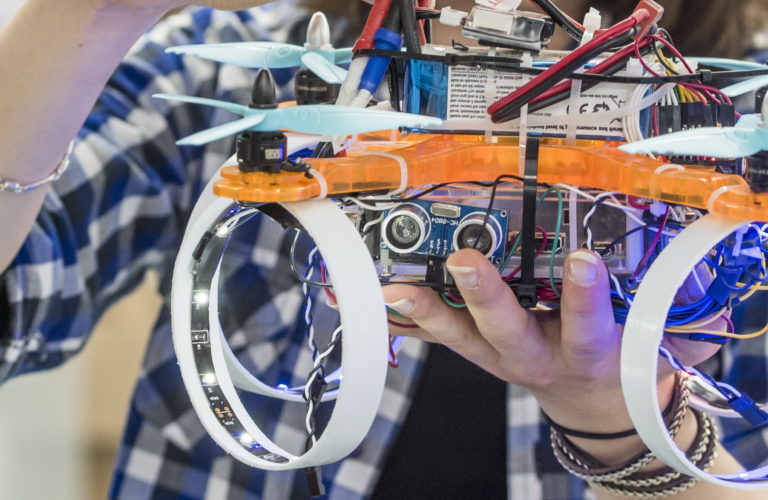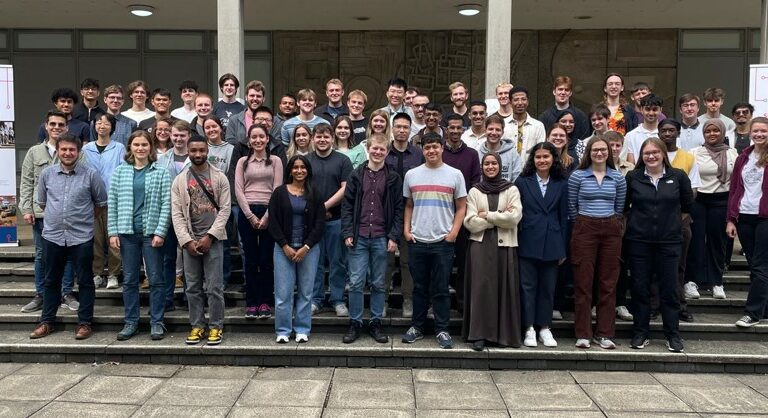This year we had a record number of UKESF Scholarships awarded to female undergraduates – 16% of the overall number and 5% more than last year
Ahead of this year’s #INWED on 23rd June, I wanted to return to the topic of gender parity in our sector.
Modern day Electronics is about using technology creatively to develop innovative products that make people’s lives better and help our society. Our engineers have never worn hardhats and they are in high demand. Therefore, the appeal should be universal; who doesn’t want to make a difference and help shape our future? However, there has been a massive gender imbalance in the sector.
To be honest, we simply can’t afford to ignore nearly half of the population if we are serious about tackling the UK’s shortage of Electronics designers and engineers. Electronics is a creative and innovative subject. Therefore, girls could enjoy it if they didn’t so often rule it out at an early age due to stereotyping and biases, and if it were taught in a way that engages them.
Here at the UKESF, we are supporting two practical initiatives this summer. The first is a ‘creative’ Electronics course for sixth formers being organised by York, one of our partner universities. Secondly, we are organising our inaugural girls-only residential course with our friends from the Smallpeice Trust. ‘Girls Into Electronics’ will be held in July at Royal Holloway, University of London, another of our partners. We want to ensure that everyone has the opportunity to explore their own interests and talents unencumbered by society’s expectations of them.
So, are there signs of progress?
The first point to make is that we are starting from a low baseline. As the IET campaign self-evidently states, we know that ‘9% is not enough‘ (women represent only 9% of the engineering workforce in the UK, according to an IET Skills and Demand in Industry survey).
However, I would like to share with you two more encouraging percentages that I think provide some evidence that we are making progress.
Firstly, the number of female UK students starting Electronic & Electrical Engineering degrees. According to UCAS, from a low point in 2013 of 470 female students, there has been an 18% increase (to 555 females in 2018). So, whilst the numbers are still low this is an encouragingly positive upward trend.
Secondly, this year we had a record number of UKESF Scholarships awarded to female undergraduates; there were 11 scholarships awarded, which is 16% of the overall number and 5% more than last year.
Now these percentages are well less than we would like; however, they are both better than 9%. The upward trend is encouraging and it shows that there are some grounds for optimism. It would be great to build on this; with the support of more companies, then we can do even more to help female undergraduates gain vital work experience in the future. If you would like to learn more about our UKESF Scholarship Scheme, then the latest Guide for Employers can be downloaded here.



